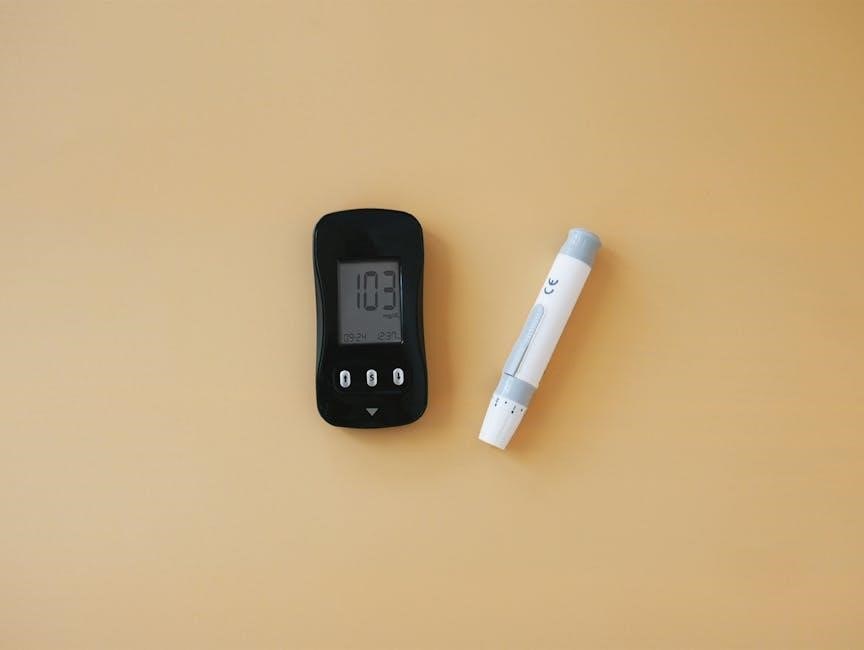The Home Health Aide Competency Test evaluates essential skills and knowledge required for providing quality care. It ensures aides meet standards for patient safety and effective support.
Overview of the Competency Test
The Home Health Aide Competency Test is a comprehensive assessment designed to evaluate both theoretical knowledge and practical skills. It consists of two main parts: a written examination and a skills test. The written exam includes multiple-choice questions covering topics such as patient care, safety protocols, and documentation. The skills test requires candidates to demonstrate hands-on abilities in tasks like assisting with daily living activities and using medical equipment. This dual structure ensures that home health aides are proficient in both understanding and applying their training. The test is a crucial step toward certification, verifying that aides can provide safe and effective care in home settings.
Importance of the Test for Home Health Aides
The Home Health Aide Competency Test plays a vital role in ensuring that aides possess the necessary skills and knowledge to deliver high-quality patient care. By passing this test, home health aides demonstrate their competence in both theoretical and practical aspects of their role. This certification not only builds trust with employers and patients but also enhances career opportunities. Additionally, the test ensures adherence to industry standards, promoting patient safety and effective care. It serves as a benchmark for professionalism, assuring that home health aides are adequately prepared to meet the diverse needs of their clients in various home care settings.
Structure of the Home Health Aide Competency Test
The test comprises a written exam with 70 multiple-choice questions and a skills test, assessing both theoretical knowledge and practical abilities in patient care.
Written Examination: Format and Content

The written examination consists of 70 multiple-choice questions designed to evaluate a home health aide’s theoretical knowledge. Content covers patient care, safety protocols, and documentation. Topics include infection control, nutrition, and emergency response. Candidates must demonstrate understanding of caregiving principles and federal regulations. The exam ensures aides can provide safe, effective care. Preparation materials, such as study guides and practice tests, are available to help candidates succeed. Correct answers are based on established standards of care, ensuring competence in essential skills. This portion of the test is critical for assessing cognitive abilities necessary for the role.
Skills Test: Practical Demonstration of Competencies
The Skills Test is a practical examination requiring candidates to demonstrate essential caregiving skills. They perform tasks such as transferring patients, measuring vital signs, and providing personal care. Evaluators assess both the technique used and adherence to safety protocols. This test ensures that home health aides possess the necessary hands-on competencies to deliver safe and effective care. Preparation materials, including study guides and practice tests, are available to help candidates master these critical skills and perform confidently during the assessment.
Eligibility and Training Requirements
Eligibility requires completion of an approved training program with a minimum of 75 hours, including both classroom and practical training, and passing the competency test.

Minimum Training Hours for Home Health Aides
Home health aides must complete a minimum of 75 hours of training, including both classroom and practical instruction. This training ensures they gain essential skills in patient care, safety protocols, and communication. The curriculum covers topics like personal care, nutrition, and emergency procedures, preparing aides for real-world scenarios. Practical training involves hands-on experience under supervision, reinforcing theoretical knowledge; These requirements are designed to equip aides with the competencies needed to pass the competency test and deliver high-quality care to clients. Meeting these training hours is a critical step toward certification and professionalism in the field of home health care.
State-Specific Requirements for Certification
Certification requirements for home health aides vary by state, with some mandating additional training or certifications beyond federal standards. Many states require aides to pass a competency test, which includes both written and practical assessments. Some states also demand background checks and fingerprinting for eligibility. Additionally, certain states may require specialized certifications, such as CPR/First Aid or training in specific patient care areas like dementia or diabetes management. These state-specific requirements ensure that home health aides are adequately prepared to meet local healthcare standards and patient needs. Professionals must stay informed about their state’s regulations to maintain compliance and provide effective care. Proper certification is essential for career advancement and trust in the healthcare field.

Preparing for the Competency Test
Effective preparation involves reviewing study guides and practicing sample questions to build confidence and understanding of the exam format and content.
Recommended Study Guides and Resources
Reputable publishers offer comprehensive study guides and practice tests that mirror the actual competency exam. These resources include PDF copies of the Home Health Aide Competency Test, which can be downloaded from platforms like Docsity. The 2024-2026 Home Health & Hospice Aide Competency Exam and Study Guide is highly recommended, providing detailed insights into exam format and content. Additionally, training manuals such as the Home Health Aide Training Manual by Kay Green are valuable for in-depth preparation. These materials cover essential topics like client care, safety protocols, and documentation, ensuring candidates are well-prepared for both the written and skills tests. Utilizing these resources helps identify knowledge gaps and improves readiness for the exam.
Practice Tests and Sample Questions
Practice tests and sample questions are essential tools for preparing for the Home Health Aide Competency Test. These resources provide candidates with a clear understanding of the exam format and content. Many study guides, such as the 2024-2026 Home Health & Hospice Aide Competency Exam Guide, include sample questions that cover various aspects of home health care. Additionally, downloadable PDFs from platforms like Docsity offer comprehensive question sets, allowing candidates to assess their knowledge and identify areas for improvement. Regularly practicing with these materials helps build confidence and ensures readiness for the actual test. They simulate real exam conditions, enabling candidates to refine their skills and strategies effectively.

Key Competency Domains Assessed in the Test
The test evaluates critical domains, including client care skills, safety protocols, documentation practices, and communication strategies, ensuring aides deliver high-quality, patient-centered care effectively.
Client Care Skills and Safety Protocols
The competency test assesses home health aides’ ability to provide safe and effective client care. This includes infection control, proper use of protective equipment, and handling medical emergencies. Aides must demonstrate proficiency in patient transfers, wound care, and vital sign monitoring. Safety protocols are emphasized to prevent accidents and ensure a secure environment for clients. Correct techniques for assisting with daily living activities, such as bathing and feeding, are also evaluated. The test ensures aides can apply best practices to maintain client well-being and safety, adhering to professional standards. These skills are crucial for delivering high-quality care in home settings.
Documentation and Communication Strategies
The competency test evaluates home health aides’ ability to accurately document client care and communicate effectively with healthcare teams. Proper documentation ensures continuity of care and legal compliance, while clear communication prevents errors and enhances client outcomes. Aides must demonstrate skills in recording vital signs, progress notes, and care plans. They are also assessed on their ability to convey information succinctly and professionally. Effective communication strategies include active listening, using clear language, and respecting client confidentiality. Additionally, aides must understand how to report changes in a client’s condition promptly. These skills are critical for maintaining seamless care coordination and ensuring client needs are met effectively.

Sample Questions and Answers
When should a Home Health Aide wear protective gloves?
Answer: During contact with blood or bodily fluids to prevent infection transmission.
Multiple-Choice Questions on Client Care
Multiple-choice questions on client care assess an aide’s ability to provide safe and effective patient care. These questions cover topics such as infection control, personal care, and emergency procedures. Aides must demonstrate understanding of proper techniques for assisting with daily activities, managing medical equipment, and maintaining client dignity. For example, a question might ask, “What is the best way to prevent pressure sores?” with options including regular repositioning, proper nutrition, and skin inspection. Correct answers reflect evidence-based practices and adherence to care standards. Such questions ensure aides are prepared to handle real-life scenarios competently and compassionately.

The Home Health Aide Competency Test ensures aides provide high-quality care, upholding patient safety and dignity. It validates essential skills, fostering trust and reliability in home healthcare services.
The Role of Competency Tests in Ensuring Quality Care
Competency tests are crucial in ensuring home health aides provide high-quality care. They assess both theoretical knowledge and practical skills, confirming that aides can perform tasks safely and effectively. By evaluating understanding of client care, safety protocols, and communication strategies, these tests help maintain consistent care standards. They also identify areas where additional training may be needed, fostering continuous improvement. Ultimately, competency tests protect patients by ensuring that only qualified individuals deliver care, building trust in home healthcare services. This rigorous assessment process is essential for upholding the integrity and reliability of the home health aide profession.